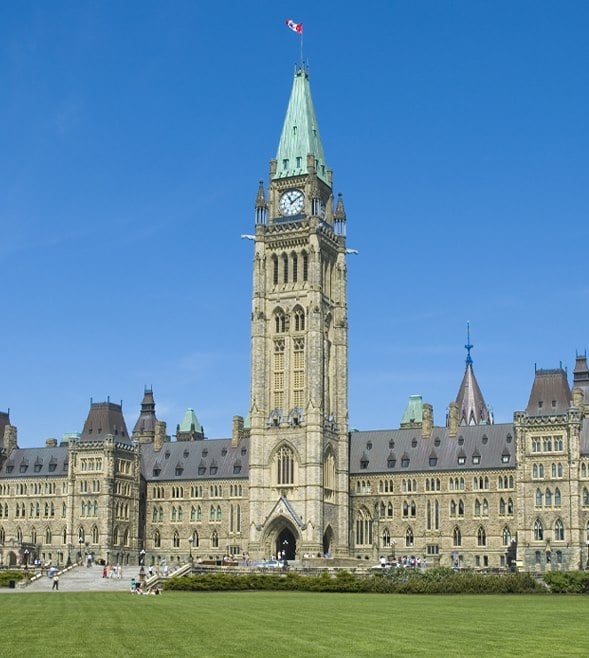-
Financial reporting and accounting advisory services
You trust your external auditor to deliver not only a high-quality, independent audit of your financial statements but to provide a range of support, including assessing material risks, evaluating internal controls and raising awareness around new and amended accounting standards.
-
Accounting Standards for Private Enterprises
Get the clear financial picture you need with the accounting standards team at Doane Grant Thornton LLP. Our experts have extensive experience with private enterprises of all sizes in all industries, an in-depth knowledge of today’s accounting standards, and are directly involved in the standard-setting process.
-
International Financial Reporting Standards
Whether you are already using IFRS or considering a transition to this global framework, Doane Grant Thornton LLP’s accounting standards team is here to help.
-
Accounting Standards for Not-for-Profit Organizations
From small, community organizations to large, national charities, you can count on Doane Grant Thornton LLP’s accounting standards team for in-depth knowledge and trusted advice.
-
Public Sector Accounting Standards
Working for a public-sector organization comes with a unique set of requirements for accounting and financial reporting. Doane Grant Thornton LLP’s accounting standards team has the practical, public-sector experience and in-depth knowledge you need.
-
Tax planning and compliance
Whether you are a private or public organization, your goal is to manage the critical aspects of tax compliance, and achieve the most effective results. At Doane Grant Thornton, we focus on delivering relevant advice, and providing an integrated planning approach to help you fulfill compliance obligations.
-
Research and development and government incentives
Are you developing innovative processes or products, undertaking experimentation or solving technological problems? If so, you may qualify to claim SR&ED tax credits. This Canadian federal government initiative is designed to encourage and support innovation in Canada. Our R&D professionals are a highly-trained, diverse team of practitioners that are engineers, scientists and specialized accountants.
-
Indirect tax
Keeping track of changes and developments in GST/HST, Quebec sales tax and other provincial sales taxes across Canada, can be a full-time job. The consequences for failing to adequately manage your organization’s sales tax obligations can be significant - from assessments, to forgone recoveries and cash flow implications, to customer or reputational risk.
-
US corporate tax
The United States has a very complex and regulated tax environment, that may undergo significant changes. Cross-border tax issues could become even more challenging for Canadian businesses looking for growth and prosperity in the biggest economy in the world.
-
Cross-border personal tax
In an increasingly flexible world, moving across the border may be more viable for Canadians and Americans; however, relocating may also have complex tax implications.
-
International tax
While there is great opportunity for businesses looking to expand globally, organizations are under increasing tax scrutiny. Regardless of your company’s size and level of international involvement—whether you’re working abroad, investing, buying and selling, borrowing or manufacturing—doing business beyond Canada’s borders comes with its fair share of tax risks.
-
Transfer pricing
Transfer pricing is a complex area of corporate taxation that is concerned with the intra-group pricing of goods, services, intangibles, and financial instruments. Transfer pricing has become a critical governance issue for companies, tax authorities and policy makers, and represents a principal risk area for multinationals.
-
Succession & estate planning
Like many private business owners today, you’ve spent your career building and running your business successfully. Now you’re faced with deciding on a successor—a successor who may or may not want your direct involvement and share your vision.
-
Tax Reporting & Advisory
The financial and tax reporting obligations of public markets and global tax authorities take significant resources and investment to manage. This requires calculating global tax provision estimates under US GAAP, IFRS, and other frameworks, and reconciling this reporting with tax compliance obligations.

-
Transactions
Our transactions group takes a client-centric, integrated approach, focused on helping you make and implement the best financial strategies. We offer meaningful, actionable and holistic advice to allow you to create value, manage risks and seize opportunities. It’s what we do best: help great organizations like yours grow and thrive.
-
Restructuring
We bring a wide range of services to both individuals and businesses – including shareholders, executives, directors, lenders, creditors and other advisors who are dealing with a corporation experiencing financial challenges.
-
Forensics
Market-driven expertise in investigation, dispute resolution and digital forensics
-
Cybersecurity
Viruses. Phishing. Malware infections. Malpractice by employees. Espionage. Data ransom and theft. Fraud. Cybercrime is now a leading risk to all businesses.
-
Consulting
Running a business is challenging and you need advice you can rely on at anytime you need it. Our team dives deep into your issues, looking holistically at your organization to understand your people, processes, and systems needs at the root of your pain points. The intersection of these three things is critical to develop the solutions you need today.
-
Creditor updates
Updates for creditors, limited partners, investors and shareholders.

-
Governance, risk and compliance
Effective, risk management—including governance and regulatory compliance—can lead to tangible, long-term business improvements. And be a source of significant competitive advantage.
-
Internal audit
Organizations thrive when they are constantly innovating, improving or creating new services and products and envisioning new markets and growth opportunities.
-
Certification – SOX
The corporate governance landscape is challenging at the best of times for public companies and their subsidiaries in Canada, the United States and around the world.
-
Third party assurance
Naturally, clients and stakeholders want reassurance that there are appropriate controls and safeguards over the data and processes being used to service their business. It’s critical.
-
 Assurance Important changes coming to AgriInvest in 2025AgriInvest is a business risk management program that helps agricultural producers manage small income declines and improve market income.
Assurance Important changes coming to AgriInvest in 2025AgriInvest is a business risk management program that helps agricultural producers manage small income declines and improve market income. -
 ASPE Sec. 3041 Agriculture Understanding and applying the new ASPE Section 3041 AgricultureThe Canadian Accounting Standards Board (AcSB) has released new guidance on recognizing, measuring and disclosing biological assets and the harvested products of bio assets.
ASPE Sec. 3041 Agriculture Understanding and applying the new ASPE Section 3041 AgricultureThe Canadian Accounting Standards Board (AcSB) has released new guidance on recognizing, measuring and disclosing biological assets and the harvested products of bio assets. -
 Tax alert Agricultural Clean Technology ProgramThe Agricultural Clean Technology Program will provide financial assistance to farmers and agri-businesses to help them reduce greenhouse gas (GHG) emissions.
Tax alert Agricultural Clean Technology ProgramThe Agricultural Clean Technology Program will provide financial assistance to farmers and agri-businesses to help them reduce greenhouse gas (GHG) emissions. -
 Tax alert ACT Program – Research and Innovation Stream explainedThe ACT Research and Innovation Stream provides financial support to organizations engaged in pre-market innovation.
Tax alert ACT Program – Research and Innovation Stream explainedThe ACT Research and Innovation Stream provides financial support to organizations engaged in pre-market innovation.
-
Builders And Developers
Every real estate project starts with a vision. We help builders and developers solidify that vision, transform it into reality, and create value.
-
Rental Property Owners And Occupiers
In today’s economic climate, it’s more important than ever to have a strong advisory partner on your side.
-
Real Estate Service Providers
Your company plays a key role in the success of landlords, investors and owners, but who is doing the same for you?

-
Mining
There’s no business quite like mining. It’s volatile, risky and complex – but the potential pay-off is huge. You’re not afraid of a challenge: the key is finding the right balance between risk and reward. Whether you’re a junior prospector, a senior producer, or somewhere in between, we’ll work with you to explore, discover and extract value at every stage of the mining process.
-
Oil & gas
The oil and gas industry is facing many complex challenges, beyond the price of oil. These include environmental issues, access to markets, growing competition from alternative energy sources and international markets, and a rapidly changing regulatory landscape, to name but a few.

BC Budget 2025 estimates that the province’s deficit for the 2024-25 fiscal year was $9.135 billion, compared to the $7.911 billion deficit projected in the previous budget. The budget considers US tariffs enacted on March 4, 2025. Specifically, the projected deficits take into account a 10% tariff on Canadian energy products, a 25% tariff on all other goods from Canada, an additional 10% tariff on goods from China and a 25% retaliatory tariff on all goods from the US.
The budget makes changes to certain housing measures including increased rates for speculation and vacancy tax and increased housing assistance payments for low- and moderate-income individuals. New measures to encourage additional development by BC’s film industry were also introduced.
Fiscal projections for the next three years are as follows:
| Year | Projected surplus/ (deficit) |
|---|---|
|
2025–26
|
($10.912 billion)
|
|
2026–27
|
($10.203 billion)
|
|
2027–28
|
($9.863 billion)
|
Tax measures related to housing
Speculation and vacancy tax
BC Budget 2025 increases the speculation and vacancy tax rate to 1% (from 0.5%) for most Canadian citizens and permanent residents and to 3% (from 2%) for untaxed worldwide earners and foreign owners. The non-refundable tax credit for BC residents impacted will increase to $4,000 (from $2,000). Registered leaseholders will need to complete an annual declaration to claim exemptions in 2025 based on the use of the property in 2024 (as announced in BC Budget 2024). There are some exceptions—for example, the Predator Ridge resort in Vernon is exempt from the speculation and vacancy tax retroactive to January 1, 2024.
Rental assistance for low- and moderate-income taxpayers
The before-tax household income threshold for the Rental Assistance Program is proposed to increase to $60,000 per year (from $40,000 per year). The average family is expected to see their supplement increase to approximately $700 per month (from $400 per month). The Rental Assistance Program is for families working at some point in the previous year who have at least one dependent child.
The before-tax household income threshold for the Shelter Aid for Elderly Renters Program is also proposed to increase to $40,000 per year (from $37,240 per year). As a result, the average supplement will go up to $337 per month (from $261 per month) and the maximum rent ceiling will increase to $961 per month (from $931 per month). The Shelter Aid for Elderly Renters Program is for individuals 60 years or older who pay more than 30% of their before-tax monthly household income towards rent.
Business tax measures
Corporate tax rates
BC Budget 2025 announces no changes to the corporate tax rates or the $500,000 small business limit.
Combined federal and BC corporate tax rates
| Year | Small business tax rate | General corporate tax rate |
|---|---|---|
|
2025 |
11.00% |
27.00% |
Film Incentive BC and basic production services tax credits
The budget expands the Film Incentive BC and basic production services tax credits. The basic Film Incentive BC tax credit increases to 40% (from 35%), and the basic production services tax credit increases to 36% (from 28%).
The budget also makes the enhanced regional and distant location tax credit for the Film Incentive BC or production services tax credit available for animation productions, under certain conditions. Specifically, these tax credits may be available where labour expenditures claimed are for workers who are physically present and working in offices in BC at a minimum of 50% of the time.
Taxpayers that claim the production services tax credit and incur BC production costs exceeding $200 million may also be able to access a new major production tax credit. This new credit is 2% of a corporation's accredited qualified BC labour expenditures for the major production. It can be claimed upon the completion of the major production.
These measures apply to productions starting principal photography on or after January 1, 2025.
Clean buildings tax credit
The budget extends the deadline for qualifying expenditures for the clean buildings tax credit by one year to March 31, 2026. The credit is for 5% of eligible expenditures related to retrofits that improve the energy efficiency of multi-unit residential buildings with four or more dwellings and prescribed types of commercial buildings.
This deadline, which was originally introduced in BC Budget 2022, was set to expire on March 31, 2025.
Interactive digital media tax credit
The budget increases the interactive digital media tax credit to 25% (from 17.5%) for eligible salaries and wages paid in BC on or after September 1, 2025. The tax credit is now permanent and will be available for all eligible expenditures (where previously, it only applied to expenditures up to September 1, 2028).
Personal tax measures
Personal income tax rates
BC Budget 2025 doesn’t change the personal rates, but it does index the personal tax brackets for 2025 as follows:
| Tax brackets | Marginal tax rates |
|---|---|
|
$49,279 or less |
20.06% |
|
$49,280 to $57,3765 |
22.70% |
|
$57,376 to $98,560 |
28.20% |
|
$98,561 to $113,158 |
31.00% |
|
$113,159 to $114,750 |
32.79% |
|
$114,751 to $137,407 |
38.29% |
|
$137,408 to $177,882 |
40.70% |
|
$177,883 to $186,306 |
43.7% |
|
$186,307 to $253,414 |
45.80% |
|
$253,415 to $259,829 |
49.80% |
|
Over $259,830 |
53.50% |
The top combined federal and BC marginal tax rates for 2025 are as follows:
| Type of income | 2025 |
|---|---|
|
Salary/interest income |
53.50% |
|
Capital gains |
26.75% |
|
Eligible dividends |
36.54% |
|
Non-eligible dividends |
48.89% |
BC Family Benefit
The budget extends the eligibility for the BC Family Benefit so that families can receive payments in respect of a child who passed away after January 1, 2025 until the lesser of six months from their death or the date that would have been their 18th birthday.
Small Business Venture Capital Tax Credit
The annual limit that an individual claim in respect of the Small Business Venture Capital tax credit has been increased to $300,000 (from $120,000) for eligible investments made after March 4, 2025.
Apprentice training tax credit for individuals
The apprentice training tax credit for individuals, as well as the enhanced credit for First Nations individuals or persons with a disability, are extended to December 31, 2028 (from December 31, 2025).
Sales and other tax measures
PST for used zero-emission vehicles
The sale of used zero-emission vehicles will be subject to provincial sales tax (PST), effective May 1, 2025. These vehicles were previously exempt from BC PST with an expected end date for the exemption in 2027.
Property transfer tax and property tax for First Nation property
Property transfer tax for First Nations
The budget exempts certain First Nations from property transfer tax on the transfer of legal ownership when certain conditions are met. Specifically, the exemption applies to transfers of legal ownership to First Nations that meet the definition of “band” (as defined in the Indian Act), where that First Nation previously had beneficial ownership of the property.
This measure applies to transfers of real property beneficially owned by First Nations prior to May 21, 2024.
Property tax for First Nations in rural areas
The budget exempts foreshore property owned by Modern Treaty First Nations (or their public institutions) from property tax. Additionally, eligible properties owned by First Nations without a present use or those used for cultural or community purposes will be exempt from rural property tax.
These measures are effective for the 2026 taxation year.
Other notable measures
2025 ICBC Rebate – a one-time rebate of $110 is anticipated to be sent to eligible policy holders in April 2025.
Have questions? Let’s talk. Contact your local advisor or reach out to us here.
Visit our Budget 2025 hub to learn more about all federal and provincial budgets.
Disclaimer
The information contained herein is general in nature and is based on proposals that are subject to change. It is not, and should not be construed as, accounting, legal or tax advice or an opinion provided by Doane Grant Thornton LLP to the reader. This material may not be applicable to, or suitable for, specific circumstances or needs and may require consideration of other factors not described herein.
Get the latest insights in your inbox.
Subscribe to receive relevant and timely insights and event invitations.







